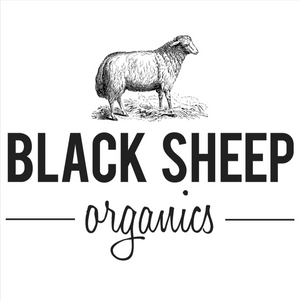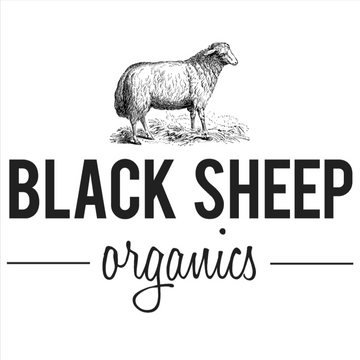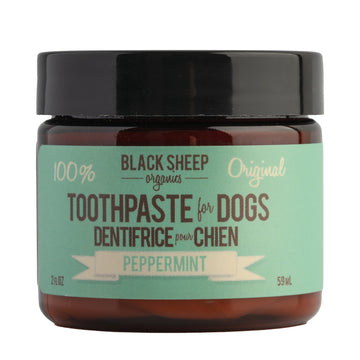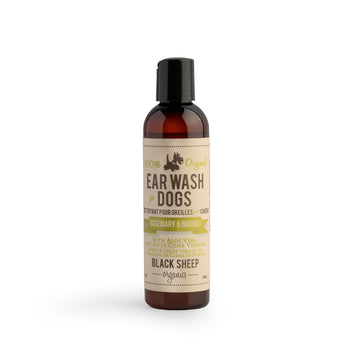How to Care for Aging Dogs: Tips and Treats for Older Pets
Sep 18, 2024
Caring for an aging dog requires thoughtful consideration and a tailored approach to meet their unique needs. This article provides essential tips on how to help older dogs thrive, focusing on practical advice for daily care, nutrition, and exercise. You will discover the best treats for senior dogs, along with ways to ensure their emotional well-being. Equip yourself with effective strategies to enhance the quality of life for your cherished pet.
Understanding the Needs of Aging Dogs
As dogs age, their needs evolve, requiring attentive care to ensure their comfort and well-being. Recognizing the signs of aging and understanding common health issues can help you provide the best care for your senior dog.
Recognizing Signs of Aging in Dogs
Aging in dogs can manifest in various ways. Here are some common signs to watch for:
- Cloudy Eyes or Vision Loss: Gradual cloudiness in the eyes can indicate vision issues or cataracts.
- Bad Breath: Sudden foul breath may signal gum disease or an oral infection.
- Mobility Issues: Difficulty climbing stairs or getting up may suggest arthritis or joint pain.
- New Lumps: While some lumps are benign, others may require veterinary assessment.
- Weight Changes: Be alert to unexpected weight gain or loss, which can indicate health problems.
- Incontinence: Accidents in the house can occur due to urinary tract issues or age-related incontinence.
Common Health Issues in Senior Dogs
Senior dogs can be susceptible to several health conditions. Here’s a breakdown of the most prevalent issues:
|
Health Issue |
Symptoms |
Management Tips |
|
Arthritis |
Stiffness, reluctance to move |
Provide joint supplements, moderate exercise |
|
Heart Disease |
Coughing, fatigue, difficulty breathing |
Regular vet check-ups, heart medication |
|
Diabetes |
Increased hunger, weight loss, frequent urination |
Monitor diet, insulin therapy if needed |
|
Dental Issues |
Difficulty eating, bad breath |
Regular dental cleanings, dental treats |
|
Kidney Disease |
Increased thirst, frequent urination |
Special diet, regular vet visits |
How to Help Aging Dogs: Practical Tips for Daily Care?
Making thoughtful adjustments to your dog’s daily care routine can significantly improve their quality of life as they age. Here are some practical tips for caring for a senior dog:
Adjusting Your Dog's Living Environment for Comfort and Safety
Creating a safe and cozy environment is crucial for aging dogs:
- Flooring: Use rugs or mats on slippery floors to prevent falls.
- Ramps: Install ramps for easier access to beds or couches.
- Bedding: Provide orthopedic beds to support joints.
- Elevated Bowls: Use raised food and water bowls to ease strain on the neck.
Importance of Regular Veterinary Check-Ups
Frequent vet visits are essential to maintaining your dog's health:
- Schedule check-ups every six months to monitor for emerging health issues.
- Conduct annual lab tests to detect conditions early.
- Discuss any changes in behavior or health with your vet to adjust treatments or diets accordingly.
Nutrition for Older Dogs: What is a Good Treat for an Older Dog?
Ensuring proper nutrition is vital for senior dogs to maintain their health and vitality. This section explores how to cater to their unique dietary needs and suggests suitable treats.
Nutritional Needs for Senior Dogs
Older dogs often have different nutritional requirements compared to their younger counterparts:
- Protein: Essential for maintaining muscle mass, but balance is key if the dog has kidney issues.
- Low Fat: Helps prevent weight gain as activity levels decrease.
- Fiber: Supports digestive health and helps manage weight.
- Essential Nutrients: Omega-3 fatty acids for joint health and antioxidants for cognitive functions.
Selecting the Right Food and Treats
When choosing food and treats, consider the following:
- Soft Texture: Ideal for dogs with dental issues.
- Limited Ingredients: Reduces the risk of allergies and sensitivities.
- Health Benefits: Look for treats with added glucosamine for joints or probiotics for digestion.
Examples of Senior-Friendly Treats
- Soft and Chewy Treats: Easy to chew, often enriched with health-supportive ingredients.
- Low-Calorie Options: Keeps weight in check while providing a satisfying reward.
Homemade Treat Recipes for Older Dogs
Creating homemade treats allows you to control ingredients and cater to specific health needs.
Simple Treat Recipe: Pumpkin and Oat Biscuits
- Ingredients: 1 cup pumpkin puree, 2 cups oat flour, 1 egg
- Instructions:
- Preheat oven to 350°F (175°C).
- Mix all ingredients until combined.
- Roll out dough and cut into shapes.
- Bake for 20 minutes or until firm.
These treats are gentle on digestion and provide a tasty reward without unnecessary additives.
Exercise and Activity: Keeping Your Aging Dog Active
Regular exercise is also crucial for maintaining the health and happiness of senior dogs. Tailoring exercise to fit their needs can significantly improve their quality of life.
Tailoring Exercise Routines for Older Dogs
When planning exercise for older dogs, consider their physical capabilities and health conditions:
- Consult with a Vet: Before starting any new routine, have your vet assess your dog's health to ensure the safety of the exercises.
- Duration and Intensity: Aim for 30-60 minutes of exercise daily, but adjust based on your dog's comfort and stamina.
- Start Slowly: Introduce new exercises gradually to monitor how they affect your dog's mobility and health.
Safe Activities to Engage Your Senior Dog
Choose activities that match your dog’s abilities and interests:
- Walking: Opt for low-impact surfaces like grass or sand. Walks help maintain joint health and provide mental stimulation.
- Swimming: This is excellent for low-impact, full-body exercise. Ensure a safe environment and monitor your dog’s energy levels.
- Stretching: Gentle stretches can help improve flexibility and reduce stiffness. Simple movements like "bicycling" the legs or encouraging a "downward dog" stretch can be beneficial.
Benefits of Mental Stimulation Through Games and Toys
Mental exercises are just as important as physical activities:
- Puzzle Toys: Use toys that dispense treats to engage your dog's problem-solving skills.
- Training Sessions: Regular obedience or trick training keeps their mind sharp.
- Interactive Play: Games like hide-and-seek or gentle fetch stimulate both mind and body.
Emotional Well-being: Ensuring a Happy Life for Your Senior Dog
Caring for the emotional health of senior dogs is as vital as addressing their physical needs. Ensuring they feel secure and content can greatly enhance their quality of life during their golden years.
Addressing Anxiety and Stress in Older Dogs
Older dogs may experience increased anxiety due to physical discomfort or cognitive decline. Here's how to manage it:
- Environmental Enrichment: Interactive toys and puzzles can keep their minds active.
- Supplements: Consider stress-relieving supplements, such as those containing natural calming ingredients.
- Routine Veterinary Care: Regular check-ups can identify underlying health issues that may cause stress.
The Role of Companionship and Socialization
Social interaction is crucial for maintaining a senior dog's emotional health:
- Quality Time: Spend dedicated time with your dog daily, offering affection and attention.
- Social Activities: Encourage interactions with other dogs and friendly humans to prevent loneliness.
- Gentle Playdates: Organize play sessions with familiar dogs to stimulate social engagement without overwhelming them.
Creating a Comfortable and Reassuring Routine
Consistency and predictability help older dogs feel secure:
- Routine Schedule: Maintain regular feeding, walking, and playtimes.
- Comfortable Environment: Ensure their living space is safe and cozy, free from excessive noise or disruptions.
- Safe Spaces: Provide a designated area where your dog can retreat to feel secure and relaxed.
As your dog ages, remember to provide them with a comfortable and safe environment, a balanced diet, regular exercise, mental stimulation, and plenty of love and attention. By taking these steps, you can help your aging dog enjoy a happy and healthy life. Remember, even as your dog gets older, they are still your best friend. Cherish every moment you have together.










